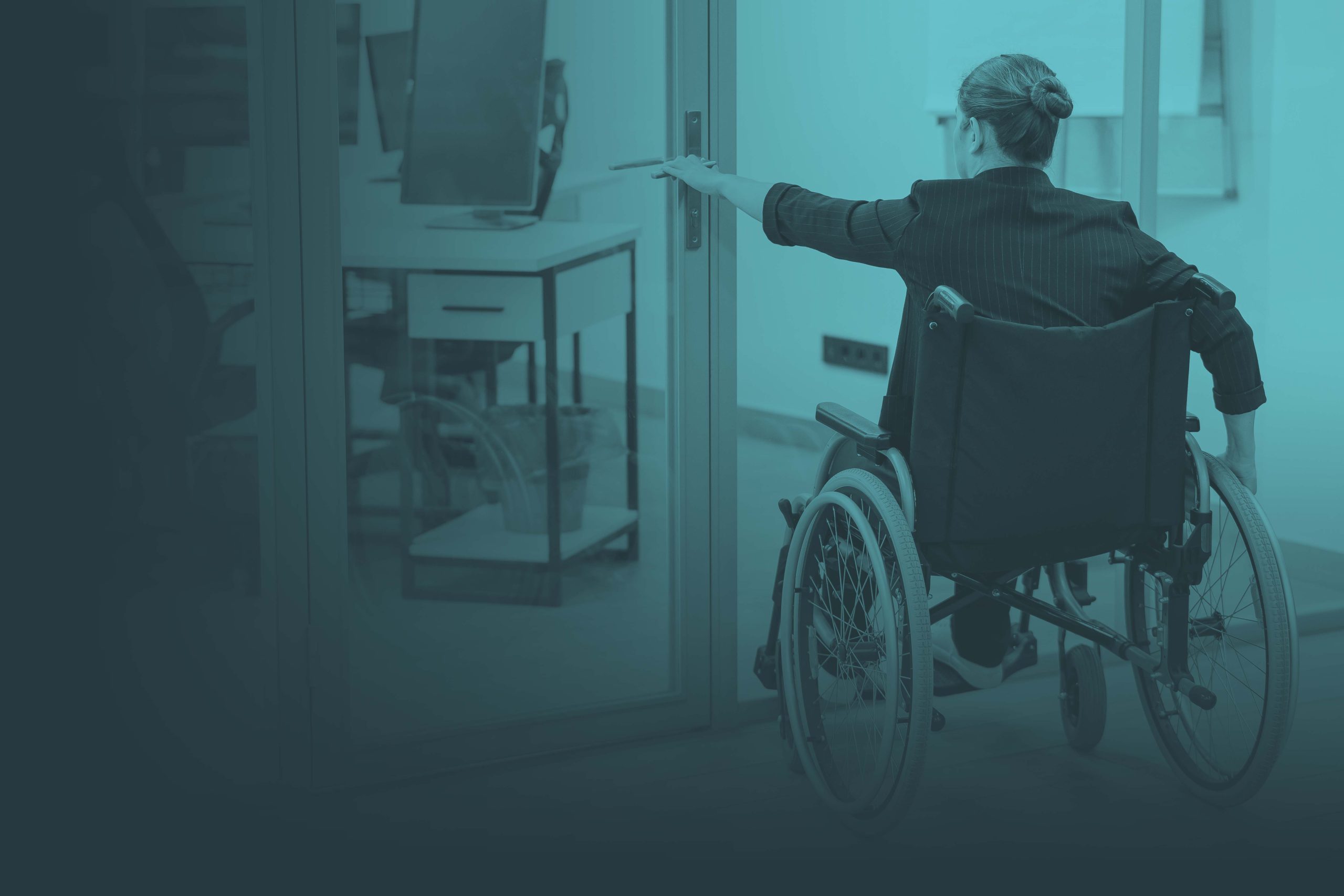
Workplace Discrimination
New York Disability Discrimination Lawyers
As a U.S. citizen, you have the right to equal employment opportunities. If your employer didn’t make accommodations for you in your workplace, or you were fired because of a disability, you could be entitled to compensation. Our disability discrimination attorneys in New York are here to help you get justice.
Filippatos PLLC’s team of experienced disability discrimination attorneys is ready to hear your case and find the justice you deserve.
888-9-JOBLAW
New York Disability Discrimination Lawyers
Thanks to the Americans with Disabilities Act, it is against the law to discriminate against someone in the workplace based on their physical or mental disabilities, whether actual or perceived.
In addition, employers have an affirmative obligation to provide reasonable accommodations to their disabled employees, which allow them to perform the essential functions of their jobs notwithstanding their physical or mental challenges.
Fighting Against Disability Discrimination in the Workplace
Despite these protections, disability discrimination in the workplace still occurs all too often and seems to be increasing in the wake of the COVID-19 pandemic.
Some employers refuse to hire disabled workers or treat them differently on the job, passing them over for promotions or laying them off despite their qualifications, skills, and relevant work experience.
What Disabilities are Protected Under the Law in New York?
New York provides strong state protections for employees, as well as independent and private contractors, subcontractors, domestic workers, vendors, and consultants under the New York State Human Rights Law (NYHRL).
Individuals with various diseases, conditions, disorders, disfigurements, and impairments are covered under disability discrimination laws.
Examples of protected individuals include those with multiple sclerosis, epilepsy, cerebral palsy, muscular dystrophy, cancer, diabetes, HIV/AIDS, bipolar disorder, obsessive-compulsive disorder, schizophrenia, post-traumatic stress disorder, speech impairments, blindness, deafness, paralysis, and other conditions.
The protected impairments or conditions may be permanent or temporary, such as a broken leg, clinical depression, or complicated pregnancy.
Taking Legal Action Against Workplace Discrimination
Disability discrimination occurs when an employee or job applicant is mistreated due to their former, existing, or perceived disability. This includes individuals not being reasonably accommodated to be able to work safely with their disability.
For example, an employee using a wheelchair may be discriminated against if their employer thinks they cannot perform duties at their desk, or refuses to make mobility accommodations.
What is Considered a Disability Under the Law?
According to the law, disabilities may be physical, medical, mental, or psychological. They generally limit a person’s ability to perform ordinary “major life activities” such as walking, hearing, seeing, standing, sitting, concentrating, or even interacting with others.
Disabilities also include limitations in bodily functions such as bladder, bowel, respiratory, neurological, circulatory, or endocrine issues.
A disability discrimination lawyer at Filippatos will also fight to protect individuals recovering from substance abuse, alcoholism, or drug addiction.
Under disability discrimination laws, it is illegal for employers to discriminate against individuals with disabilities when hiring, firing, promoting, disciplining, training, granting entitled medical leave, and more.
Reasonable Accommodations in the Workplace
If someone is qualified for a job, it is an employer’s responsibility to provide “reasonable workplace accommodations,” unless doing so presents an undue hardship—for example, safety threats to other employees or financial difficulties for the company.
The US Equal Employment Opportunity defines a reasonable accommodation as any modification or adjustment to a work environment or position that enables you to perform the essential functions of that position.
Accommodations can also be changes made to a role to allow someone to enjoy the same benefits as able-bodied people.
Some examples of reasonable accommodations include providing assistive technology to complete tasks, adjusting work schedules or attendance requirements for people, or making physical changes to the work environment.
When Does an Employer Need to Make Changes?
Under the law, when an employee seeks a reasonable workplace accommodation for a bona fide disability, the employer must engage in a “dynamic interactive process” to determine if such a reasonable accommodation of the worker’s disability is possible.
In other words, the employer must problem-solve with its employees—not ignore them—when they try to continue working even though they may suffer from a disability.
What is “Failure to Accommodate”?
It’s possible that an employer could be guilty of workplace discrimination if they fail to make changes to the workplace or someone’s roles to accommodate their disability.
An employer fails to accommodate an employee when they don’t provide enough of a change. They might outright refuse to update the work environment or they may take too long to make a reasonable change.
Other Protections Against Disability Discrimination
In addition to the disability discrimination that occurs during the hiring process or because of the employer’s failure to reasonably accommodate, disability discrimination laws also protect workers from disability-based harassment that often results in the creation of a hostile or discriminatory work culture.
Items classified as harassment may include offensive images, pantomimes, jokes, slurs, or derogatory remarks. The offender does not have to be your boss. You may also file a complaint if these inappropriate actions came from a co-worker, customer, or vendor.
Contact a disability discrimination lawyer to explore a disability harassment claim.
How to File a Disability Discrimination Claim
If you believe you have been discriminated against in the workplace due to a disability, you have the right to pursue legal action.
You should consider filing a written complaint with your supervisor or human resources department and keeping a copy for your records. Document each incident thoroughly, noting the time, date, place, and any witnesses.
You may also choose to file a claim with the U.S. Equal Employment Opportunity Commission (EEOC). It is always best to obtain effective legal representation prior to filing a complaint with an administrative agency.
Disability discrimination claims should be filed within 180 days of the illegal action, although this deadline may be extended to 300 days in some cases. Additionally, you may file a local claim with the New York State Division of Human Rights or the New York City Commission on Human Rights.
You should always speak up about discrimination or harassment in your workplace. Once you file a formal complaint, you enjoy additional legal protections against retaliation. Remember, it is illegal for an employer to retaliate against you for filing a disability discrimination claim.
Damages to Recover from Disability Discrimination Claims
If you have been a victim of disability discrimination in the workplace, you may be entitled to compensation for lost wages and benefits, emotional distress, attorney’s fees, and punitive damages.
The court may also order an employer to provide reasonable accommodations for employees with disabilities in the workplace, which may include making the workplace more accessible, modifying equipment or work schedules, offering additional training or interpreters, allowing trained support animals in the workplace, reassigning work duties as necessary, permitting an employee to work from home, providing additional breaks, or granting an extension of medical leave.
We Will Protect You Against Disability Discrimination in New York
If you believe you have been discriminated against at work due to a disability, please do not hesitate to contact us. Our team of workplace discrimination lawyers bases in NYC serve throughout the New York area, including the Greater Tri-State area of New Jersey and Connecticut, as well as Florida.
At Filippatos PLLC, we believe all individuals—from factory workers to boardroom executives—are entitled to fair pay and a workplace free from discrimination, harassment, and retaliation. Our team of experienced disability discrimination attorneys in New York City will fight hard to secure you the dignity, respect, and justice you deserve.


